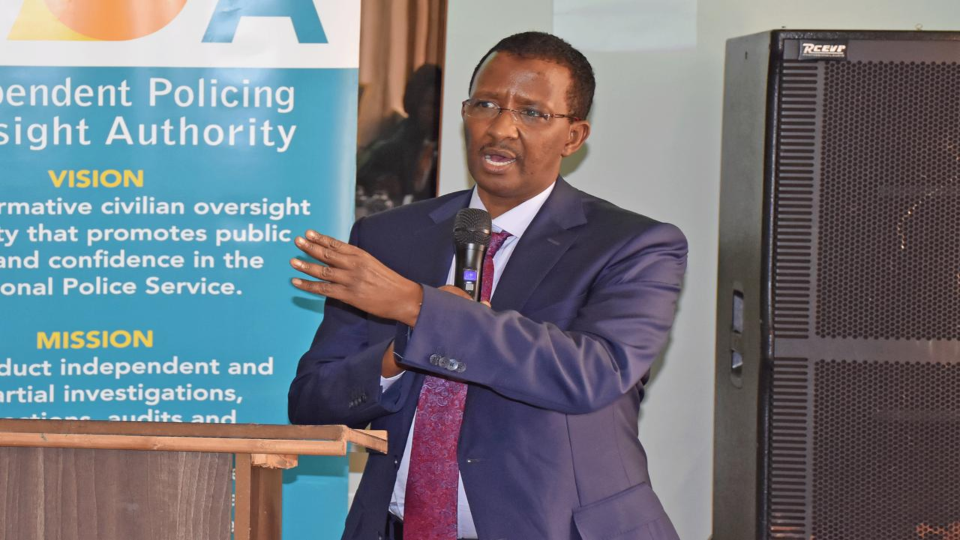Parliament Endorses IPOA’s Call for Increased Funding, Independence, and Armed Investigators
Members of Parliament have expressed strong support for the Independent Policing Oversight Authority’s (IPOA) request for increased financial resources, greater operational independence, and the authority to arm its investigators. This development follows a comprehensive report by IPOA highlighting significant challenges faced during the anti-Finance Bill protests in June and July 2025, which resulted in numerous casualties and raised concerns about police accountability.
The parliamentary backing was voiced during a session of the National Assembly’s Administration and Internal Security Committee, chaired by Narok West MP Gabriel Tongoyo. The committee reviewed IPOA’s findings, which documented 65 fatalities, 342 civilian injuries, and 171 police officer injuries during the protests, alongside widespread destruction of property. The report underscored systemic issues in police conduct, including excessive use of force, and emphasized the need for IPOA to have enhanced capabilities to address these challenges effectively.
Committee members, including Kitui Central MP Makali Mulu, stressed the urgency of equipping IPOA with adequate resources to fulfill its mandate of overseeing police conduct and ensuring accountability. Mulu highlighted that insufficient funding has long hindered IPOA’s ability to conduct thorough investigations, particularly in cases involving extrajudicial killings and enforced disappearances. He advocated for the authority to be granted full operational autonomy, free from external interference, to strengthen its role in holding law enforcement accountable.
A key point of discussion was IPOA’s proposal to arm its investigators. The committee acknowledged that allowing IPOA personnel to carry firearms could enhance their safety and effectiveness, particularly when probing sensitive cases involving rogue officers. This proposal stems from the dangerous environments investigators often face, where they encounter resistance or threats from armed individuals. Tongoyo noted that arming investigators would require careful legal amendments to ensure compliance with existing laws while safeguarding public trust.
The MPs also addressed IPOA’s call for expanded jurisdiction to oversee other state agencies involved in policing duties, such as the Kenya Defence Forces (KDF), Kenya Forest Service (KFS), and Kenya Wildlife Service (KWS). These agencies have increasingly taken on policing roles, particularly during public unrest, yet they operate without independent oversight. Committee members argued that extending IPOA’s mandate to cover these bodies would close critical accountability gaps and ensure uniform standards across all security operations.
The parliamentary session also highlighted concerns about the broader state of police accountability in Kenya. MPs criticized the Directorate of Criminal Investigations (DCI) for delays in acting on IPOA’s recommendations, citing a 2017 procurement case where investigation files went missing. Such lapses, they argued, undermine public confidence in law enforcement and necessitate stronger oversight mechanisms. The committee urged the government to prioritize funding for IPOA in the 2025/2026 budget to address these systemic issues.
Public response to the MPs’ stance has been mixed. Civil society groups, including human rights activists, have welcomed the push for a more robust IPOA, seeing it as a step toward addressing longstanding issues of police impunity. However, some citizens expressed skepticism, citing past failures to implement parliamentary recommendations. Social media discussions have emphasized the need for tangible action, with many calling for transparency in how additional funding would be utilized.
The protests that prompted IPOA’s report were driven by widespread opposition to the Finance Bill 2024, which sparked demonstrations across Kenya, particularly in Nairobi. The violence during these protests, including the deaths of 23 people between 7 a.m. and 6 p.m. and an additional 30 at night in Githurai, underscored the urgency of reforming police oversight. IPOA’s findings pointed to instances of excessive force, including the fatal shooting of 22-year-old street vendor Boniface Kariuki, which fueled public outrage and demands for accountability.
Interior Cabinet Secretary Kipchumba Murkomen faced significant criticism during the committee session for his remarks defending police actions and vowing not to cooperate with investigations into protest-related killings. MPs condemned these statements as undermining efforts to address police brutality, with some calling for his ouster. The committee also referenced the case of Ojwang, who died in custody at Nairobi’s Central Police Station, where an autopsy revealed signs of physical assault, contradicting initial police claims of self-inflicted injuries.
As Kenya approaches the 2027 general elections, the issue of police accountability remains a critical concern. The MPs’ support for IPOA’s proposals signals a potential shift toward stronger oversight, but challenges remain in translating these commitments into action. The committee has called for urgent legal and budgetary reforms to empower IPOA, with a focus on ensuring its independence and capacity to protect citizens’ rights.
The government has yet to issue an official response to the committee’s recommendations, but pressure is mounting to address IPOA’s funding and operational constraints. As public demand for justice grows, the outcome of these discussions could shape the future of police reform in Kenya, with implications for public safety and trust in governance.


